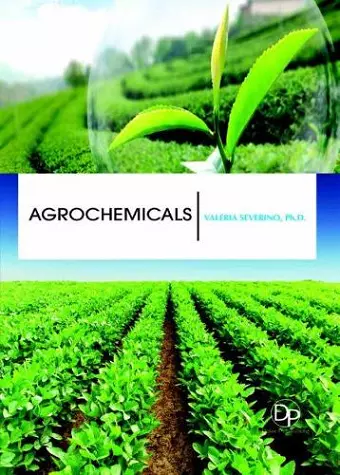Agrochemicals
Format:Hardback
Publisher:Delve Publishing
Published:30th Nov '16
Should be back in stock very soon

An agrochemical is any substance used to help manage an agricultural ecosystem, or the community of organisms in a farming area. Agrochemicals include: fertilizers, liming and acidifying agents, soil conditioners, pesticides, and chemicals used in animal husbandry, such as antibiotics and hormones. The use of agrochemicals has been critical to the raising crops for food. However, some of these chemicals cause substantial environmental and ecological damage, greatly reducing their benefits. Various agrochemicals are given to livestock. Antibiotics are administered, either by injection or combined with feed, to control infectious diseases and parasites that often arise when animals are raised under extremely crowded conditions. Hormones are routinely administered to increase the growth and productivity of animals, such as the bovine growth hormone given to cows. Agrochemicals (mainly pesticides and fertilizers) represent an important tool to support and improve crop industry, agriculture technologies and livestock. In fact, an optimized use of such compounds along with correct methods and application ensures an increase in crop production, thus reducing costs. However, some agrochemicals can be very hazardous to the health of workers, people in general and also to the environment. An enormous amount of these agrochemicals have been found in our planet, thus raising doubts related to their potential effects on ecosystems. In this framework, the huge international market of agrochemicals leaded to an increased interest in researches focused to better understand mechanisms, effects and risks of these compounds. In this book a global overview on agrochemicals is proposed. In a first section, the principal types of agrochemicals (e.g. pesticides, insecticides, and fungicides), fertilizers and new production technologies are reviewed. The second section focuses on some sustainable alternatives to classical agrochemicals. Finally, the relationship between commonly used agrochemical compounds and cardiovascular diseases among farmworkers is also discussed. While agrochemicals increase plant and animal crop production, they can also damage the environment. Excessive use of fertilizers has led to the contamination of groundwater with nitrate, a chemical compound that in large concentrations is poisonous to humans and animals. In addition, the runoff of fertilizers into streams, lakes, and other surface waters can increase the growth of algae, leading to the death of fish and other aquatic animals. Pesticides that are sprayed on entire fields using equipment mounted on tractors, airplanes,...
ISBN: 9781680957525
Dimensions: unknown
Weight: unknown
230 pages